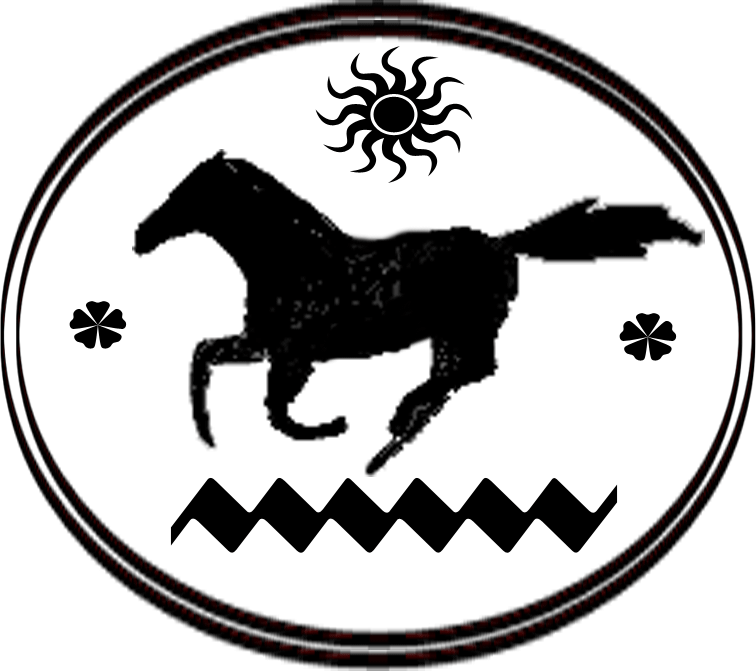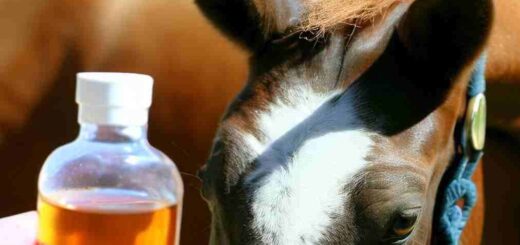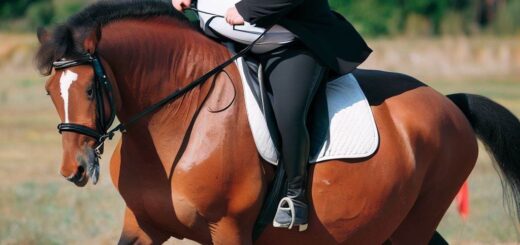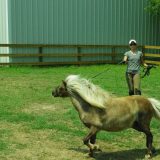Benefits of horseback riding therapy
Are there any significant therapeutic benefits of horseback riding? Can it be used in therapy? The short answer is yes, benefits of horseback riding therapy can improve your condition, strength, motor skills, reflexes and increase chances of recovery from some diseases. Overall it can help you stay in shape, considering other factors as well, of course.

Depending on the disability, benefits of horseback riding therapy include improvement in joint mobility, balance and coordination, relaxation of spasticity, increased muscle tone, self-confidence through enhanced self-image, improved learning, concentration, spatial awareness, and motivation.
Scientific studies show the existence of the benefits of therapeutic horseback riding which are the result of advantages of active movements, and those of communicated or passive movements. The act of riding horses has been going on for thousands of years. During horseback riding, a rider follows the motions of the movable basis (a horse) which supports him. Each time the animal upon which he sits alters its position, at the instant when its feet, carried forward, meet the soil and are thus forced to support the weight of the body, a shock takes place, and all the movements of impulse given to the body of the animal cause a displacement which is communicated to the rider. These concussions are repeated at intervals more or less frequent, according to the rapidity of the movement of the animal, and they are more or less strong according to the gait of a horse, the nature of the ground, the quality of the horse, and the skill of the one who rides. So what does it mean?

Well, the benefits of horseback riding therapy are evident. Horseback riding is very adapted to the physical development of a human because for many millennia humans practiced horseback riding not just for hobby but as means of transportation, war or production. Today, we ride horses because we want to. So we can say in general that effects of horseback riding reach every function of a body, but as they are each and all inseparably connected, no one of them can increase in energy without augmenting the action of the others. Thus horseback riding therapy, quoting Ghislani Durant, “rouses the weak ones, restores and maintains the equilibrium, and establishes harmony between all the physiological phenomena of life”. In this lies its hygienic and therapeutic power.
Horseback riding is a hard work which is in itself can provide therapeutic advantages. It may not look all that difficult when you’re watching an experienced rider, but the truth is that a whole slew of muscles, along with balance and stamina, come into play as you’re riding.
Of course horseback riding does not develop impressive athletic forms as a result of GYM attendance or can cure 100% difficult disabilities. Still horseback riding therapy depending on the disability brings a great number of muscles into action, sometimes simultaneously, sometimes successively. It can improve balance, posture and coordination, circulation, metabolism and respiration. Regular horseback riding activity improve reflexes, physical fitness and stamina.

Horseback riding is therefore a general education of all the muscles much superior to that of fencing, for example, which includes that of only one member totally neglecting the other.
Mental challenges also come along with this sport. In order to get the most from your riding lessons and your time in the saddle, deal with any fear issues you have about riding and understand your role as the leader of your team of two (that is, you and the horse).
Horseback riding is a good, physical, outdoor-indoor activity that can help to promote fitness.
As a matter of fact, jockeys are considered the second fittest athletes, right behind marathon runners. Like learning to swim, ride a bicycle, or play tennis, riding takes hard work, and it also requires concentration, comprehension, and the development of skill to do it properly. When done properly, it is exhilarating, never drudgery.
Aside from swimming, which experts agree is the best all around exercise there is, riding can give more to a person, in a myriad of ways, than any other activity available. Riding teaches responsibility, patience, coordination, concentration, fitness, application, accomplishment, achievement, sportsmanship, humility, lifelong skills, balance, industriousness, kindness, and good manners.

Benefits of horseback riding therapy are incredible but horseback riding is also almost spiritual quest to the person who pursues it seriously. As you ride on the trail to enlightenment, you’ll discover things about yourself you don’t admire much, such as triggers for fear, anger, and frustration. If you keep going, you’ll also discover moments and emotions you can’t experience many other ways, including the deep and enduring satisfaction and sense of fulfillment that comes from being able to communicate with another species.
After you come to know horses well, your world — and your perspective of it — changes forever. You find that they have unique personalities of their own, as well as needs and feelings similar to ours. The task of caring for a horse is at once a rewarding and daunting task, especially to someone new to horses. Horses are not objects to be treated however you wish and then disposed of when you tire of them. They are sentient, thinking beings that deserve to be treated the way we would want to be treated if we stood in their horseshoes.
There’s an endless amount be to be learned. You can pick up knowledge through books, but the most valuable wisdom will come from your interactions with the horses themselves. With a horse or two around the house, you will never be bored again. You also won’t have to visit the gym as much because riding and caring for horses will keep you in shape.

So in conclusion I would like to point out 10 Reasons why horseback riding is a good general therapy for anyone who has any issues with health.
1. Riding horses is a good physical exercise.
2. Learning to ride develops confidence and self-esteem in kids and adults alike which can be helpful as therapy in dealing with physiological issues.
3. Taking care of a horse teaches kids valuable lessons about ownership, responsibility, and respect for another living creature’s well-being.
4. Learning to ride teaches you how to face and deal with your own fears and self-doubts.
5. Being around horses helps you stay in touch with and appreciate the natural world.
6. Riding gives you an opportunity to enjoy the outdoors activities and view nature from trails and meadows like no other sport can.
7. Sharing an interest in horse-related activities enables family members to spend quality time with one another which alone could be a great family therapy.
8. Riding horses is a lots of fun.
9. Learning to communicate with an animal that doesn’t speak human language is an immensely satisfying and fulfilling achievement.
10. Gaining a horse’s trust, getting to know him as an individual, and learning to enjoy his companionship are growth experiences that will change you forever.
I found the most helpful and well-written book to scientifically and experientially explain why horses have the extraordinary ability to emotionally transform the lives of many people, whether they are horse lovers, or suffering from deep psychological wounds. It’s called ‘Riding Home: The Power of Horses to Heal’ by Tim Hayes. I highly recommend you to find some time and read it. After I read this book I found local equine therapy facility near my home. After starting a horse therapy, I learned how to love again, and more deeply than I could have ever imagined because of a horse. To the point now where I can live without the fog of medications and anti-depressants, and to the point where I could love another person enough to get married and trust her more than I ever thought I could. Horses truly can heal!












